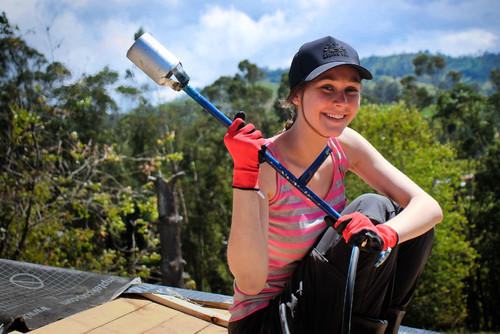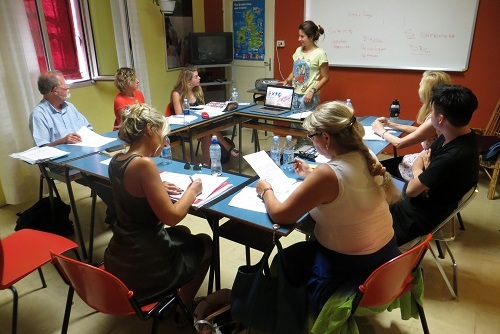Shawn Achor, CEO of Aspirant and author of "The Happiness Advantage," claimed that a happy brain performs better on the Harvard Business Review podcast.
If traveling is something that makes you happy, then according to the Happiness Advantage theory, you'll be able to study better while traveling to your dream destination.
Here are several nifty tips for planning your travel itinerary to fit your study schedule as well effectively.
1. Buy Essentials to Study Effectively
Ensure that you carry all your study-related tools and accessories on your trip. These may include your laptop, tablet, Kindle, and chargers. It would be a bummer to travel to a new country with a perfectly curated study and travel timetable, only to realize you left your laptop or charger behind.
Carry a separate backpack just for your study essentials so that you can access them without having to go through your entire luggage. Keep your laptop, tablet, e-book reader, chargers, notebooks, stationery, and other necessities in one place.
2. Create a Balanced Routine
Unless and until you figure out when your brain functions at its best, you won't be able to study effectively. If you find yourself focusing better in the morning before the daybreak, set the alarm and wake up early enough to dedicate 2-3 hours to study before starting your day.
Or, if you are a night owl and concentrate better at night, plan your day in such a manner that you are back in time to recharge after a day out and study for 2-3 hours before hitting the bed. It's all about finding the right balance to get the best out of your trip.
3. Do Fun Activities
The first and foremost step to balance your study and travel plans is to develop an itinerary. Plan everything you want to do on your trip and understand how much time you need for every activity. Note them down clearly in a notes app or your calendar. This way, you will be able to see precisely what you've planned and incorporate study time effectively.
To get the most out of your study time, aim to block a substantial amount of time in one go, like a couple of hours. You can block two hours in the morning and likewise at the end of the day. This way, you'll have the entire day to enjoy the place you're visiting.
4. Get All Your Online Resources in Order
Once you have sorted your study backpack, the next order of business is to get your online resources in order. Doing so includes ensuring accommodation with free in-room Wi-Fi connection, organizing your credentials for the online course materials, and have ready access to educational forums or websites where you can get help.
If you have assignments lined up, we advise you to get them done before the trip as you wouldn't want to spend your time away on finishing those. Another option is to get experts to do your assignments for you while you prep for the trip, and here's a great site for this use.
5. Make a List of Things to Do
It is an extension of the point mentioned above, where you figure out everything you want to do during the day. Writing down what you want to do on a particular day will give you a clear picture of how much time it will take and make adjustments to fit your study schedule.
While spontaneous plans are exciting, they also tend to throw your schedule off balance. Therefore, we advise you to stick to what you set out to do and plan your time accordingly. It will give you a sense of accomplishment at the end of the day and put you in the right frame of mind to study better as well.
6. Take Time to Give Your Body and Mind Some Rest
Another crucial tip to help you focus better is to know when to stop. Unless your body and mind are performing at 100 percent, you won't be able to focus on study. Therefore, we recommend taking a day or two off to dissociate and pamper yourself.
Find a local spa or pool, treat yourself to a relaxing massage or a swim. These are just a couple of examples. The main thing is to know when to floor the pedal and when to take your foot off it. It's a holiday after all!
























